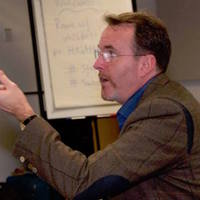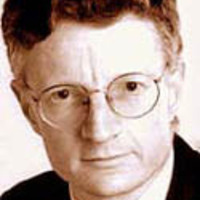
Ritske Rensma
Related Authors
Dermot Moran
Boston College
Johannes Zachhuber
University of Oxford
Daniel D. Hutto
University of Wollongong
Galen Strawson
The University of Texas at Austin
Martin Kusch
University of Vienna
Timothy Williamson
University of Oxford
Shaun Gallagher
University of Memphis
Vera Shevzov
Smith College
Carole Cusack
The University of Sydney
Karl Baier
University of Vienna










Uploads
Books by Ritske Rensma
Topics covered include:
-How to use weekplans to remember the big stuff and make sure you start with your most important projects on time
-How to use to-do lists to remember the small stuff and prioritise what is most important to work on
-How to deal with distractions and overcome procrastination (with a special focus on handling digital distractions such as social media)
Inspired by time management classics such as Getting Things Done and Eat That Frog, Make Lists Not Fists will teach you a simple, effective time management system that actually works, and which hundreds of students have already learned and put into practice with great results. Now fully updated and revised (2020).
"I am currently using this system and it’s working like a charm. I am managing the work which needs to be done for my Master, I am doing several projects on the side, I have a social life and I am sleeping enough.”
Amand van Rossum, Dutch college student
“It actually works. I cannot recall one more stressful moment since I started working with it.”
Debby-Esmée de Vlugt, writing in student magazine Tabula Rasa.
“Going beyond the conventional paralleling of Campbell with Jung, Ritske Rensma argues that Campbell’s view of Jung went through three stages. At first, Campbell granted Jung and Freud equal importance in the understanding of myth. Next, Campbell rejected Jung's view on, especially, the origin of myth in favor of the ethological view espoused by Konrad Lorenz and Niko Tinbergen. Finally, Campbell came to see the overlap between Jung and the ethologists. An original, scholarly approach to Campbell, one that rests substantially on the scrutiny of unpublished material. Strongly recommended.”
Robert A. Segal, Sixth Century Chair in Religious Studies, University of Aberdeen, UK
Papers by Ritske Rensma
(This is a follow-up article to my earlier article on Jung and Nietzsche called "Jung's reception of Friedrich Nietzsche: a roadmap for the uninitiated")
Topics covered include:
-How to use weekplans to remember the big stuff and make sure you start with your most important projects on time
-How to use to-do lists to remember the small stuff and prioritise what is most important to work on
-How to deal with distractions and overcome procrastination (with a special focus on handling digital distractions such as social media)
Inspired by time management classics such as Getting Things Done and Eat That Frog, Make Lists Not Fists will teach you a simple, effective time management system that actually works, and which hundreds of students have already learned and put into practice with great results. Now fully updated and revised (2020).
"I am currently using this system and it’s working like a charm. I am managing the work which needs to be done for my Master, I am doing several projects on the side, I have a social life and I am sleeping enough.”
Amand van Rossum, Dutch college student
“It actually works. I cannot recall one more stressful moment since I started working with it.”
Debby-Esmée de Vlugt, writing in student magazine Tabula Rasa.
“Going beyond the conventional paralleling of Campbell with Jung, Ritske Rensma argues that Campbell’s view of Jung went through three stages. At first, Campbell granted Jung and Freud equal importance in the understanding of myth. Next, Campbell rejected Jung's view on, especially, the origin of myth in favor of the ethological view espoused by Konrad Lorenz and Niko Tinbergen. Finally, Campbell came to see the overlap between Jung and the ethologists. An original, scholarly approach to Campbell, one that rests substantially on the scrutiny of unpublished material. Strongly recommended.”
Robert A. Segal, Sixth Century Chair in Religious Studies, University of Aberdeen, UK
(This is a follow-up article to my earlier article on Jung and Nietzsche called "Jung's reception of Friedrich Nietzsche: a roadmap for the uninitiated")